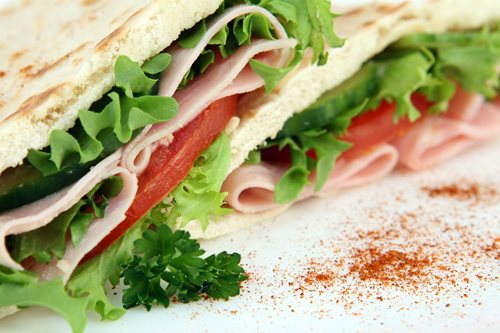
When you are on the road, it is easy to go without food for several hours. Whether trying to lose weight or just maintain it, this can be counterproductive. Think of food as fuel; when you are eating enough of the right foods, your body will use that fuel to perform. Once the fuel is depleted, it turns to the fuel stored as fat. Therefore, if you burn more calories than you consume, you will, in theory, lose weight. However, if you are not eating enough food, you may be sabotaging yourself.
Your body requires calories in order to burn calories. But, when your brain processes the lack of food because you are not eating enough, your body can go into starvation mode and begins breaking down your lean muscle and storing it as fuel…that is, fat. In addition, your metabolism will likely slow down due to the lack of constant fuel, so you will not burn the stored fat as quickly.
The first step to ensuring that you are eating enough is to determine your recommended daily caloric intake. The National Institute of Health has created a chart showing how many calories you should eat each day based on your gender, age, and level of physical activity. (Most drivers should select “sedentary.”)
Once you determine how much you should eat, the next step is to make sure you eat frequently throughout the day. As mentioned earlier, you need to keep feeding your body fuel throughout the day, rather than starving yourself for hours. It is a good idea to break down your daily calories into several small meals, which are eaten every two or three hours, in order to avoid a drop in your blood sugar, which can have many negative and even dangerous effects. Fatigue, blurred vision, rapid heartbeat, headache, and dizziness are just a few symptoms of low blood sugar.
In addition, when you wait too long between meals, you are far more likely to overeat at your next meal and be tempted to eat the wrong foods (those high in calories and fat since they will quickly satisfy your cravings). Unfortunately, those foods will probably not provide the nutrition your body requires, which will send you back for seconds.
Just be careful about eating throughout the day. It is still important that you stay within the required calories, whether for maintaining or losing weight. Remember – calories in vs. calories out.
Eat well. Live well. Drive well.
This article was originally featured on Rolling Strong.